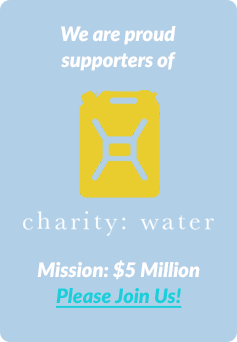There is an important distinction that needs to be made between giving to others and pleasing others.
Why?
Because giving feels good, whereas in most cases, pleasing feels like pressure, and can cause angst, uncertainty and a myriad of other feelings, all of which are not good ones when the response does not match the effort.
Knowing the difference between giving from your heart and pleasing will set you free, allowing you to truly be all that you can be for yourself and others.
When you are in a giving mindset, you are totally in control of the choice of giving. Additionally, your reward is not attached to any expectation of reciprocation because it is inspired by the pleasure of giving.
When you are in a pleasing mindset, your choices are being dictated from the outside. Consequently, you are expecting an outcome to confirm that you have pleased, be it a positive reaction, acknowledgement or gesture of approval. Whether it is a spouse, friend, co-worker, boss or whomever, when you are focused more on pleasing than giving, you have taken your own power away and have become a pawn in someone else’s desire for satisfaction.
So, why does pleasing become such a focus, and how do we make the shift to the purity of giving?
Think back to your childhood and you’ll begin to see why. Once we are cognizant of our surroundings and begin to relate to others, we are also being taught how to function, which includes a learning environment of reward or consequences. We are literally taught to please before we are ever taught to give.
In working with company leaders and individuals to define their true calling and purpose, I was able to define three traps that people fall into when the focus is on pleasing others: the happiness trap; the pride trap; the expectation trap.
1. The Happiness Trap
The happiness trap is when you either believe you will be happier once you have accomplished something, or that you will make someone in your life happy as a result of this action or accomplishment. Either way, you are allowing the outside to influence your inside.
To gauge for yourself, ask yourself these questions:
- Do I believe accomplishing this specific goal will make me happy, and I cannot be happy unless I do accomplish it?
- Am I trying to make someone happy with something I am doing that I really don’t enjoy doing or want to be doing?
- Can I be happy focusing on something else, or can I be happy with what I already have?
If you answered “yes” to one of the first two questions, and/or “no” to the last question, you are caught in a happiness trap of pleasing.
2. The Pride Trap
The pride trap is when you are out to prove something to yourself, a specific someone, or a group of people in general. Now, there is a caveat to this one. It is okay to be out to prove something that has never been done or accomplished before out of a spirit of proving to yourself it can be done. However, if the focus is more on showing others it can be done or proving others were wrong, then you may be more focused on the pleasing aspect than the actual experience of accomplishing what you believed could not be done.
To gauge for yourself, ask yourself these questions:
- Why is it so important that I accomplish this against what others believe is possible? Is it because they doubt me, or because I believe it truly is possible?
- Am I seeking to make someone proud of me by my actions or what I am trying to accomplish? If so, who and why is this so important to me?
- If I were to take the person who I want to be proud of me out of the equation, is this something I really want to do for myself?
If the doubts and pride of others is more of your driving force compared to an impassioned desire to accomplish something or transform something, then you are caught in the pride trap of pleasing.
3. The Expectation Trap
The expectation trap is when you feel an obligation to do something, accomplish something, or behave in a certain way as a result of someone else’s expectation. If you ever find yourself dreading doing something you really don’t want to be doing, guess what? You are caught in an expectation trap.
To gauge for yourself, ask yourself these questions:
- Are there things you are doing that you feel obligated to do, yet don’t enjoy or want to be doing them?
- Have you made a commitment that you wish you had not made? Why was the commitment made? Did someone entice or make you feel obligated to commit?
- Are you acting in a certain way because you have been made to believe that is how you should act or behave, even though it is uncomfortable and does not feel or come natural to you?
If you answered “yes” to any of these questions, then you are caught in an expectation trap of pleasing.
You know yourself better than you think you do. Give yourself permission to think and feel from within the deepest realm of your being. Discard any outside influences, beliefs, or directives, and simply ask yourself what is most important to you. What matters the most to you? What makes you happy and brings you joy effortlessly? What excites you and delights you?
There is no greater power than to have goals inspired from your deepest passions. There is no greater gratification than allowing your conviction and belief in yourself to enable you to achieve what may have seemed impossible.
And the best part of it all is, once you stop pleasing, you are in a better place to give all that you have to offer in the most gratifying and satisfying ways. No strings attached.








